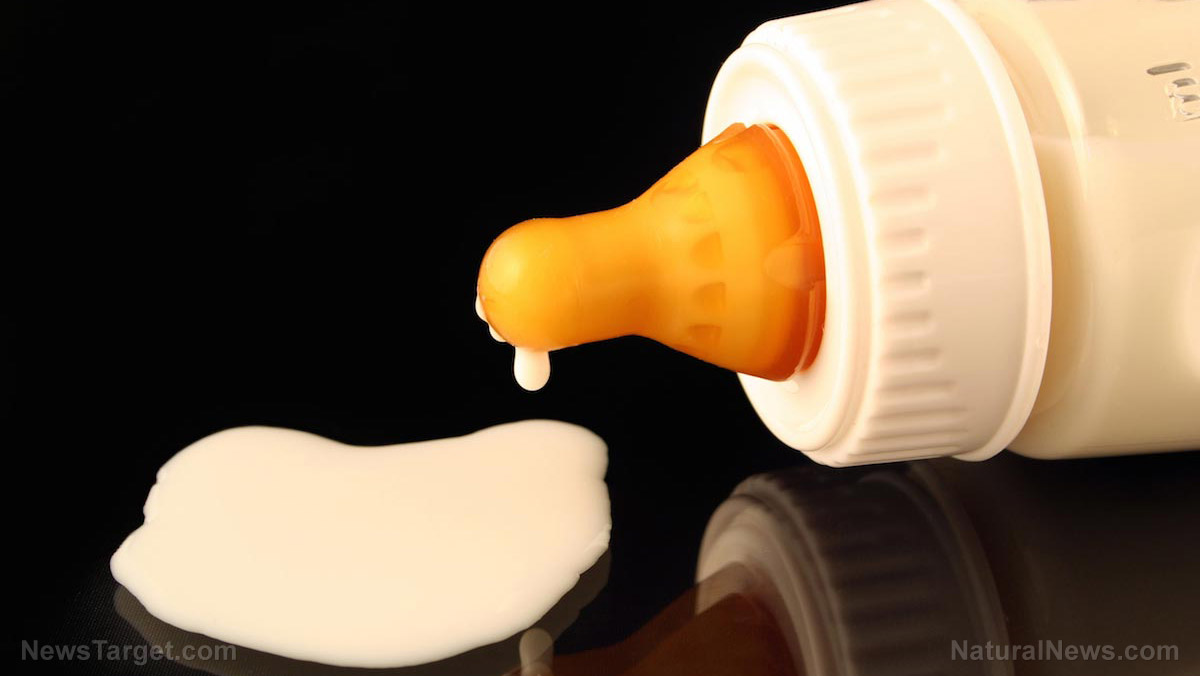A protein found in breast milk can be used to treat cancer and certain bacterial infections
05/31/2018 / By Vicki Batts

Breast milk is known for the many health benefits it provides babies — but could it hold promise for adults too? New research has shown that human breast milk contains a special protein that can ward off cancer and may even be useful in the treatment of select bacterial infections. While breast milk is generally thought of as just food for infants, it looks like it may soon become the perfect food for fighting cancer, too. Who would have thought?
Scientists from the Institute for Hygiene and Applied Immunology of the Center for Pathophysiology, Infectology and Immunology at MedUni Vienna just uncovered a previously unknown function of a protein known as lactoferrin, which is mostly found in breast milk. Study leader Hannes Stockinger said of the findings, “This discovery could be useful in developing new therapeutic agents for cancer and also for treating certain bacterial infections.”
Breast milk protein fights cancer and more
As sources explain, the researchers investigated the effects lactoferrin has on a key enzyme in the human body, plasminogen. Plasminogen has a crucial role in protein breakdown but, in truth, plays many a part in the body: it’s also key for organ development, immune response, wound healing and the breaking down of blood clots.
But in order to do all of this, plasminogen must be converted into its active form, plasmin — and this is where things can go awry, setting the stage for disease. Vladimir Leksa, another study leader from MedUni Vienna, explained, “Malignant tumour cells and some virulent types of bacteria, such as Borrelia, for example, bind and activate human plasminogen in order to penetrate tissue barriers. Consequently, the plasminogen system is a useful target for diagnostic and therapeutic strategies in cancer and inflammatory diseases.”

The scientists from MedUni Vienna have found that lactoferrin inhibits the activation of plasminogen, by directly bonding to it. This action, in turn, prevents tumor cells from invading — and also has a protective effect against some types of bacteria, like Borrelia.
Stockinger summed up the team’s findings, declaring, “Our results not only add to our understanding of many antimicrobial, antitumour and immunomodulatory activities that are attributed to lactoferrin but also show that lactoferrin can be useful as a natural tool for therapeutic interventions, to prevent malignant cells from invading and virulent bacteria from penetrating hosts.”
More cancer-fighting than meets the eye
As luck would have it, lactoferrin isn’t the only cancer-fighting compound in breast milk. In 2017, research revealed another protein capable of stopping cancer in its tracks: alpha-lactalbumin. The Swedish researchers who discovered it, however, gave it a nickname: Hamlet.
Professor Catharina Svanborg, who made the initial discovery, reportedly said of the protein, “There’s something magical about Hamlet’s ability to target tumour cells and kill them.”
Svanborg is an immunologist at Lund University in Sweden, and stumbled upon the anti-cancer action of Hamlet while studying antibiotics. She explained that breast milk is a great source of novel anti-microbial agents; her team had chosen human tumor cells to experiment with for “practical reasons,” and were then shocked to see what happened next.
“To our amazement, when we added this compound of milk, the tumour cells died. It was a totally serendipitous discovery,” Svanborg recalled.
Hamlet attacks cancer cells through a variety of pathways, including destroying the cells’ mitochondria (the cellular powerhouse) and the nucleus — ultimately leading to cell death, or apoptosis.
In an early trial of bladder cancer treatment with Hamlet, patients began shedding dead cancer cells in their urine in number of days. Breast milk is surely a gift that just keeps on giving.
Stay up-to-date with the latest news on what cancer treatments work (and which ones don’t) at Cancer.news.
Sources for this article include:
Submit a correction >>
Tagged Under:
anticancer foods, breast milk, cancer research, cancer tumors, discovery, immune system, lactoferrin, medical science, milk protein, research
This article may contain statements that reflect the opinion of the author




















